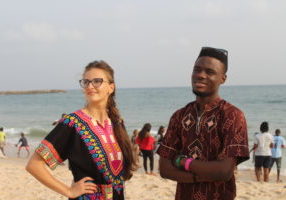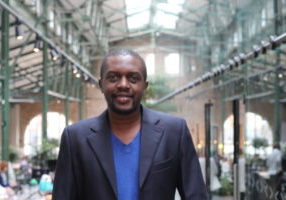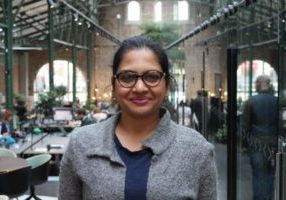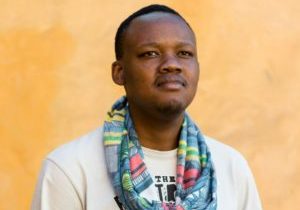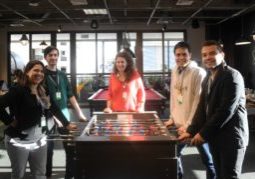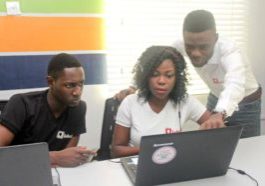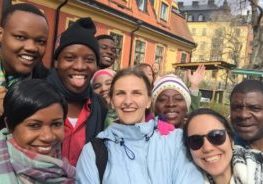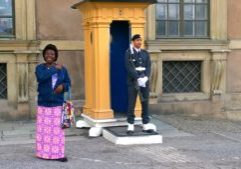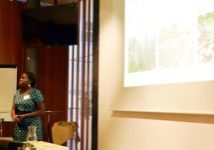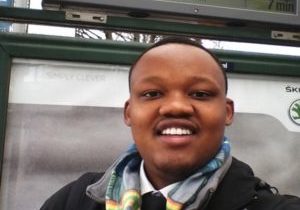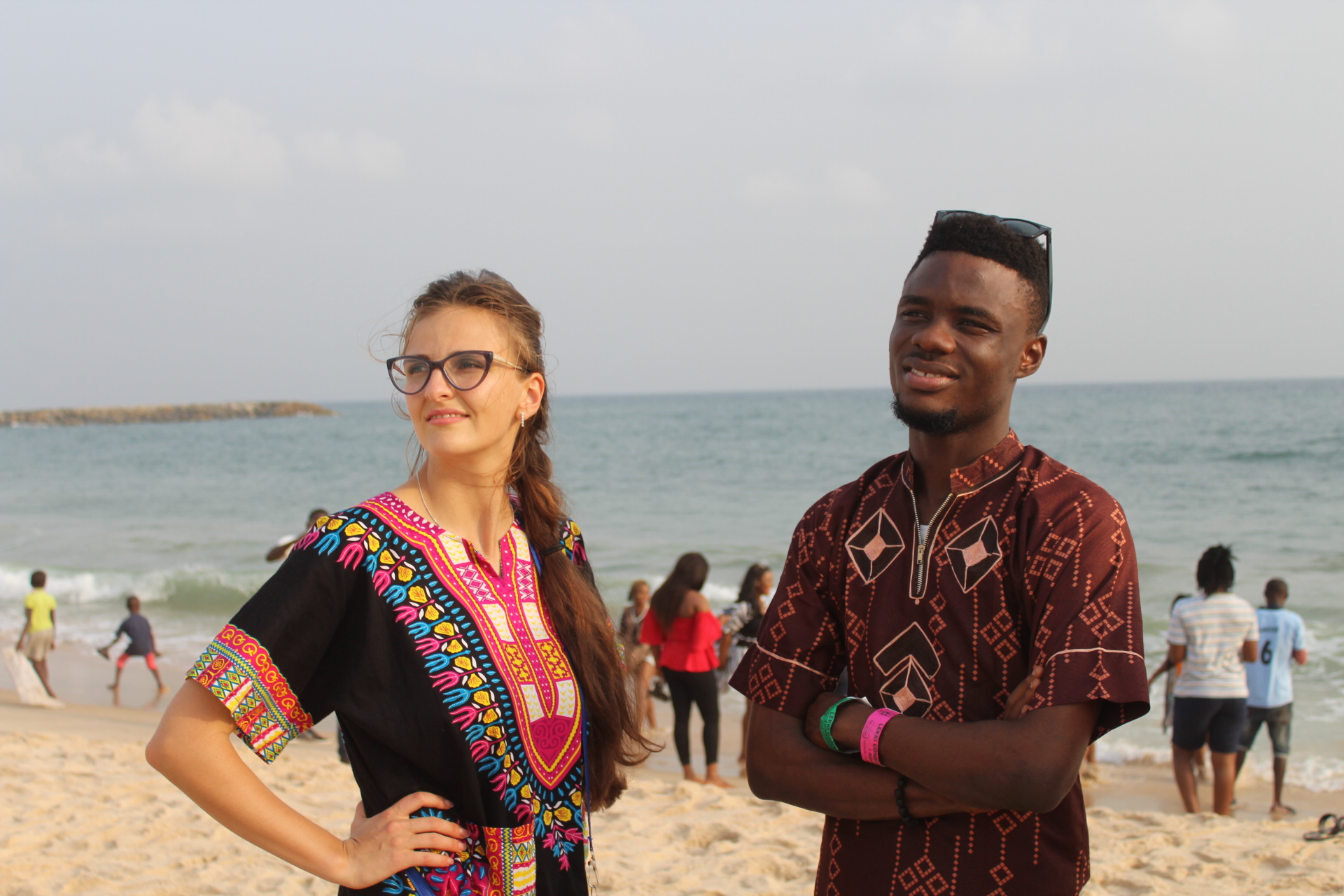
One inspiring week in Nigeria
March 22, 2018 - Blog Posts
I recently got back after spending an intense and inspiring week in Nigeria with my colleague Tove, visiting previous participants of SE Forum’s SE Outreach Accelerator. We flew to the continent to meet our alumni in person, discuss their updates and see what had happened after they left Sweden.
In my role as Social Impact Coordinator at SE Forum, I set out to explore what these entrepreneurs took home with them from the Accelerator, how they have progressed since, and to see the impact they’re having on the communities around them.
The quest for public health and safe blood
The entrepreneurs that have gone through our Accelerator over the years work across sectors to reduce poverty, improve health and education, promote peace and equality, foster economic growth, and protect the environment. The ones we were able to meet in Nigeria cover many of these.
We met with Francis, a dynamic and innovative young entrepreneur and founder of Redbank – an online platform that connects hospitals and patients with blood banks, enabling patients and doctors to easily find safe blood in real time.
As for many social entrepreneurs, finding a sustainable business model has been crucial for Francis, as he knows he will only be able to continue and grow his social impact if the platform is sustainable. During the Accelerator in 2016, Francis was looking for ways to monetise his platform learning from other experiences, brainstorming and testing approaches with his coaches and mentors. 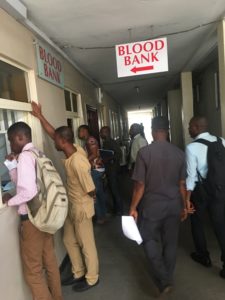
Whilst in Stockholm for the Accelerator, Francis was also able to visit Swedish blood banks and saw how the blood supply system works in Sweden. Unfortunately, the reality in Nigeria is more complex, there is no unified database of blood records, the hospitals or patients are not aware of the particular blood bank that has the needed blood type. In cases like this, lots of patients die as a result of the delay in trying to find safe blood, whereas the needed blood units sit on shelves until their expiry date and are disposed.
To change this situation, Francis realised he needed to unify efforts with other players. When he returned to Nigeria he developed a partnership with Red Cross and other blood donor organisations to carry out blood drives and has since then developed a donor platform that keeps digital records of donors and their blood types to make the search for the right blood more effective. Another productive collaboration – with Blood Bank Society of Nigeria – increased Redbank’s outreach and has provided better access to blood records and data.
There are many challenges for Redbank’s work in Nigeria. Technology rate by customers is low as some find it difficult to use the platform, either because of power issues, or the fact that some do not have computers to run the application. So Redbank tries to ensure its platform is flexible for the customer needs, for example, by allowing blood banks to update their profiles via Whattsapp. Or, in cases of urgent blood search, instead of using SMS, patients/relatives can call a 24/7 Redbank phone line. There is also the widespread traditional belief that blood donation isn’t safe – the main reason why only 10% of blood supplies in Nigeria come from voluntary donors. So Redbank is working to raise awareness and change the mindset of people. Even though there is still a long way to go when it comes to optimising and digitalising the sector, the Redbank team is making lots of progress in building a more effective system for blood supply in Nigeria.
Fighting for female empowerment
We also met with Olutosin, an extraordinary strong and inspiring she-entrepreneur and founder of Star or Hope Transformation Center. Olutosin works with victims of gender-based violence, rehabilitating them and empowering them to earn their own income, tackling a very deep-rooted problem in Nigerian society. Due to the stigma and silence, there is insufficient data on domestic violence but according to Olutosin’s expert opinion, 2 out of 3 Nigerian women and girls have suffered some form of gender-based violence. Being a mother of two beautiful daughters, Olutosin wants to stop this horrible tendency in Nigerian society, and it’s hard to overestimate her motivation to help the women who have suffered from it.
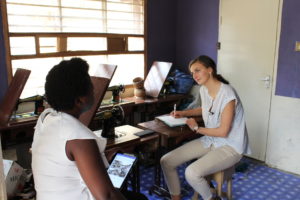 During her time on the SE Outreach Accelerator in 2016, Olutosin was exposed to the Swedish approach to gender equality issues, and thought of ways to increase her social impact in Nigeria. After the Accelerator she said: “I came to Sweden with a charity mindset, but through the programme I learned how to make real, sustainable impact through business creation”. She also realised she had to ensure she can pay decent wages for the women she works with.
During her time on the SE Outreach Accelerator in 2016, Olutosin was exposed to the Swedish approach to gender equality issues, and thought of ways to increase her social impact in Nigeria. After the Accelerator she said: “I came to Sweden with a charity mindset, but through the programme I learned how to make real, sustainable impact through business creation”. She also realised she had to ensure she can pay decent wages for the women she works with.
After returning back home she established a for-profit company Tosin Turns Trash to Treasure and changed her approach to pricing. Olutosin realised the difference between cost-based and value-based pricing, and she has clearly understood she is not selling just a bag, a purse, or a wall decoration. She is selling a message to end violence against women, and customers are buying her products as they support this message.
All these developments helped Olutosin and her team to increase the number of women they can train and support in learning how to earn their own income. Now the team has a proper office, where they can work despite the bad weather or rain (this was not possible in their previous location as it was just a canopy that could be blown away with the wind). Olutosin expanded the women empowerment programme, and now she concentrates on wider skill acquisition depending on women’s needs and demands of their community (not only knitting and tailoring, but also farming, selling food or other goods, etc).
We had the please of spending a whole day with Olutosin and her team and the visit gave us not just joy, but confidence that her social venture will continue to increase its impact on women’s lives giving them real chances for a better future.
A passion for education and for not forgetting the forgotten
Another inspiring day in Lagos was spent with Erezi who set up Back to School – a project of Spell Africa Initiative. His co-founder Elvis participated in the SE Outreach Accelerator in 2013, but as he was abroad on business development duty, we had the opportunity to instead meet with Erezi, who gave us a great overview of the organisation and its projects.
Back to School is a free, daily literacy class teaching adults how to read and write for economic and social development. Considering the fact that there are more than 60 million illiterate people in Nigeria, this is a huge market to target.
There was some initial funding for the project but as it ran out, and with numerous other challenges to keep it going, the decision was made to close Back to School. But the students continued to come every day, and nevertheless tried to continue their education and learn from each other. Erezi was impressed by this tremendous motivation amongst the adult students and said to himself: “I have to do everything I can to make sure this project doesn’t end”. 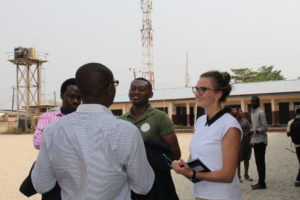
And that’s what he is constantly doing.
For their current scale of operations he has found a way to keep the project running without investment, but is looking for solutions to make Back to School sustainable and ensure it can grow and have bigger impact. Back to School is now on bootstrapping strategy: they involve volunteer teachers, use school premises for their classes and other in-kind resources to reduce their costs. Erezi is also trying different funding models like crowdfunding campaigns, partnerships with local government and schools, fundraising amongst friends and relatives, students’ entrepreneurial efforts to generate income for the school, and appreciates the aspect of learning and growing organically.
Erezi’s expertise is enormous and has been hired to consult with the local government and to coordinate the launch of five more schools for adults in other districts of Lagos.
In Erezi we say a true passion for education and giving people better economic opportunities. Perhaps that’s also why others want to join and support his work: famous radio hosts, high range officials, and other successful people come to inspire adult students to continue their studies.
Going your own way and learning from mistakes
The final alumna we visited on our trip was Destiny, a talented biochemistry graduate with a passion for recycling who founded EcoFuture, a waste recovery company offering convenient recycling services to business establishments. Destiny always knew she wanted to follow her dreams and make a difference, so she decided to choose a different path rather than finding a “normal” job, as her parents advised her. Instead she started her recycling company and has, in a short space of time, done a lot to change people’s attitudes to recycling in a country where litter and waste is a huge problem resulting in erosion and illness.
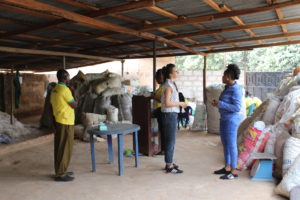 When speaking to her about her experience, Destiny confessed she got scared during the Accelerator in Sweden. She got a warning from the SE Forum coaches that her business would collapse if she continued to manage her finances in the way she did. But that fear motivated her to take action and re-think her business model. EcoFuture switched from a highly competitive B2C model to an elevated B2B model, which enabled her to train her previous competitors. The Accelerator was an eye-opener for her in terms of financial management and cash projections. After common work and analysis with her mentors she realised that her company profit margin was much smaller than she used to think, since she did not include things like expenses, although they were directly related to her business. Now having the tools and skills for proper financial management, she learned during the Accelerator, she feels much more confident and EcoFuture is subsequently more sustainable as a venture.
When speaking to her about her experience, Destiny confessed she got scared during the Accelerator in Sweden. She got a warning from the SE Forum coaches that her business would collapse if she continued to manage her finances in the way she did. But that fear motivated her to take action and re-think her business model. EcoFuture switched from a highly competitive B2C model to an elevated B2B model, which enabled her to train her previous competitors. The Accelerator was an eye-opener for her in terms of financial management and cash projections. After common work and analysis with her mentors she realised that her company profit margin was much smaller than she used to think, since she did not include things like expenses, although they were directly related to her business. Now having the tools and skills for proper financial management, she learned during the Accelerator, she feels much more confident and EcoFuture is subsequently more sustainable as a venture.
As a founder and CEO, Destiny also has to think about the overall business development, including building a strong team. During the Accelerator she learnt about different ways to motivate her long-term employees, which she is introducing now and she’s already noticed positive results. She is very focused to grow her impact and expand the scale of her work. She has ambitious plans to develop the company’s own recycling production and increase the existing waste turnover. With that dedication and hard work, EcoFuture has prospects to strategically address waste management issues in other regions of Nigeria outside of Benin City where the company is currently operating.
Transferred learnings
During our trip we saw that all our entrepreneurs do not wait for the government or anyone else to solve their problems. Instead they are working hard, building solutions and resolving issues to create a better society in Nigeria. It was amazing to see how the learnings and knowledge from the Accelerator classrooms have transferred into actions to provide better business deliverables, aiming to increase social impact while moving towards improved financial sustainability.
To SE Forum, our entrepreneurs are a very central part of our work and this trip was a great motivation and energy booster for our team. We have got in-depth understanding of the entrepreneurs’ businesses, context and the day-to-day lives, which also strengthened relationships between us and our alumni.
We wish our alumni best of luck and look forward to learning more about their future achievements!
This blog post was written by SE Forum’s Social Impact Coordinator Svitlana Pinchuk following our trip to Nigeria in January 2018.

